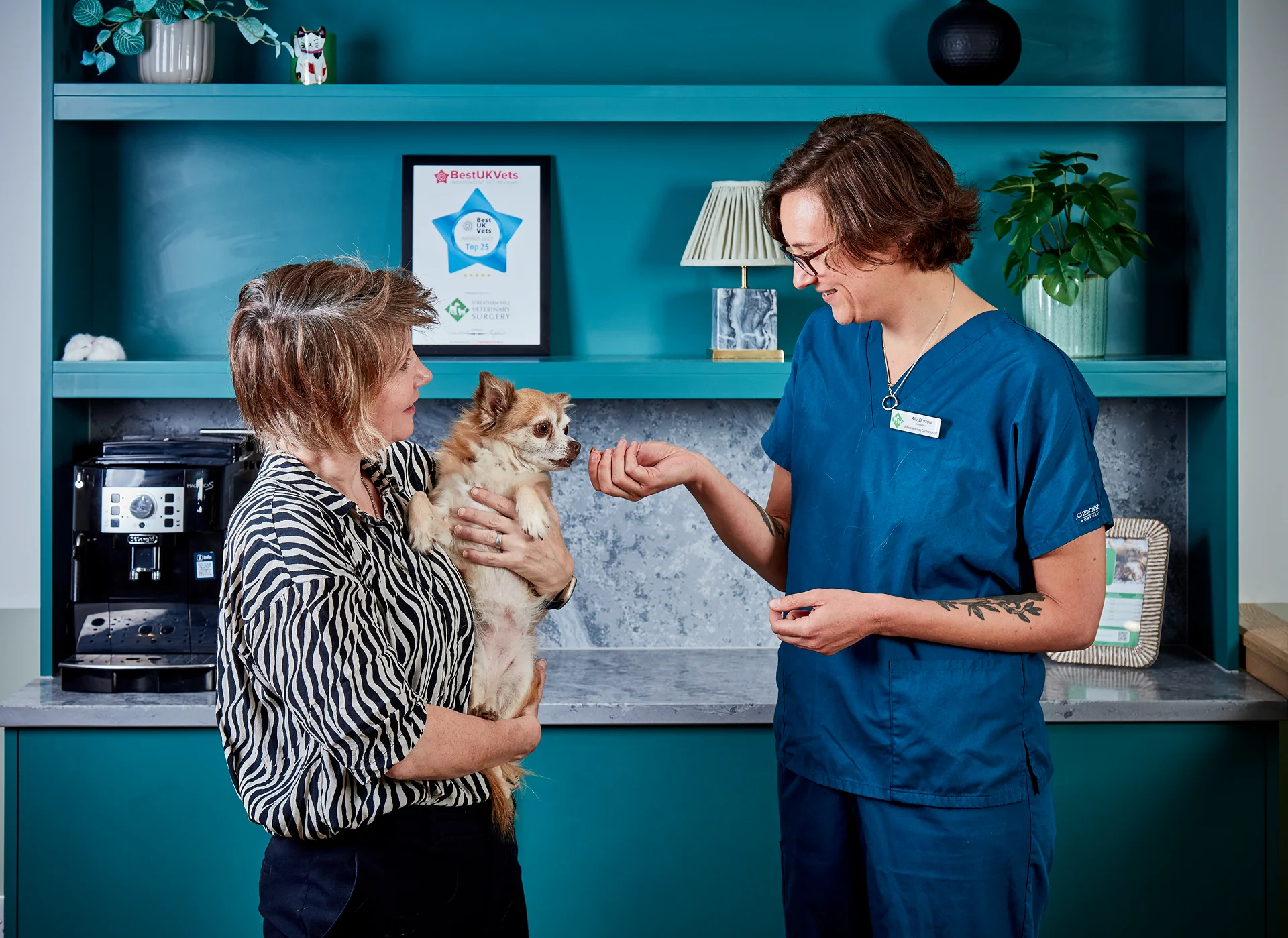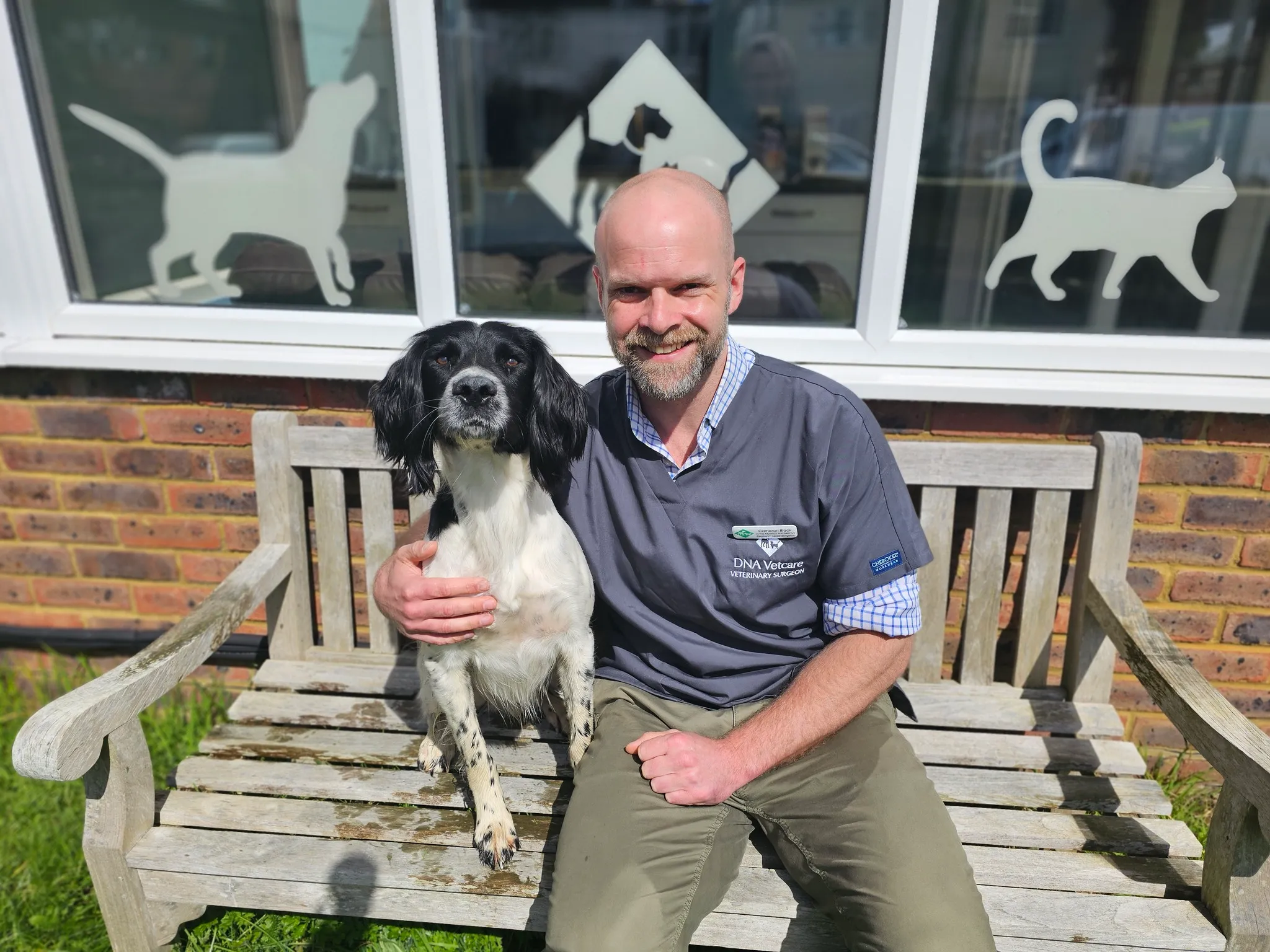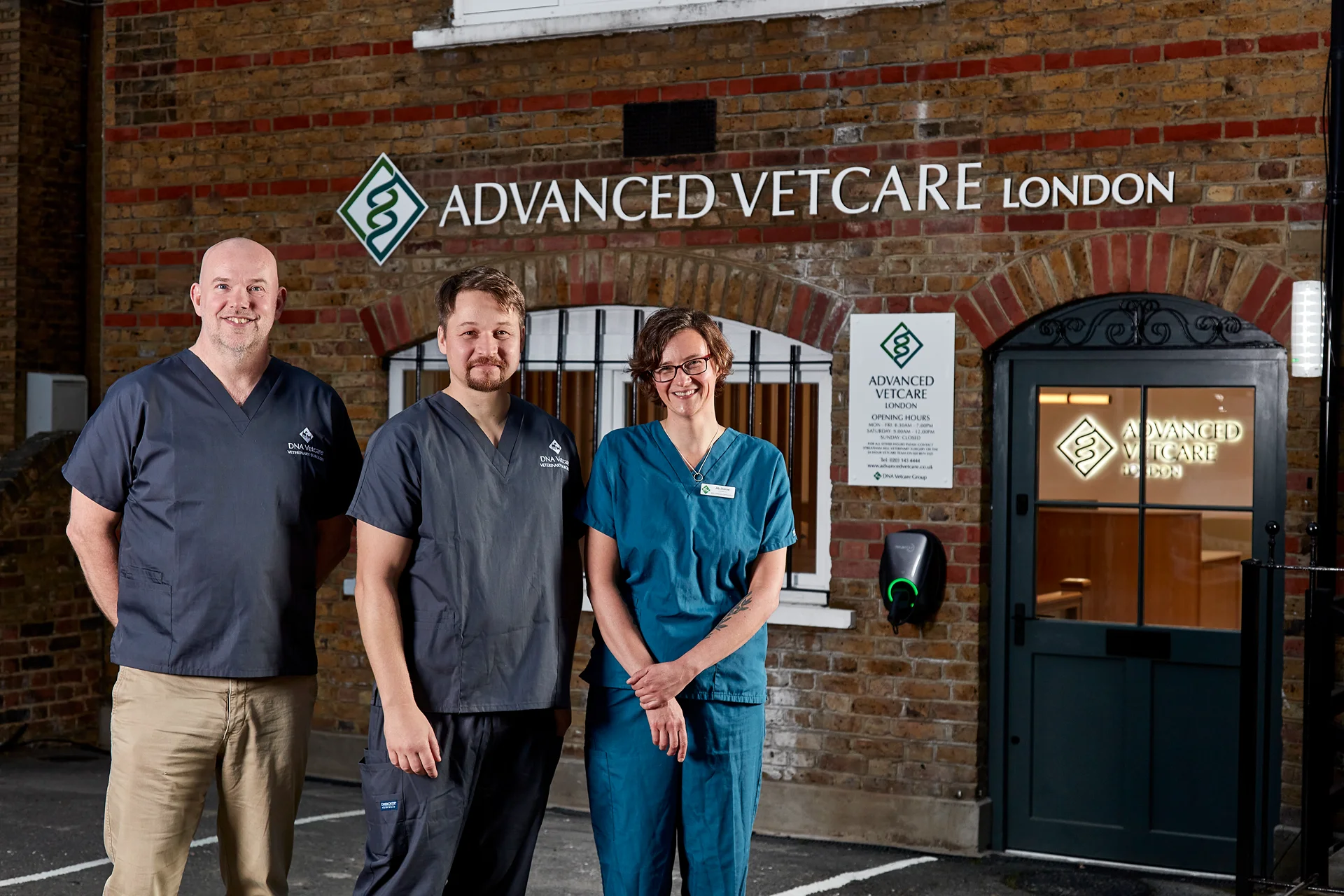Our Veterinary FAQs

Appointments are typically arranged via veterinary referral. Your primary vet can send us a referral directly, or you can contact us directly for guidance on how to begin the process.
Please bring any medication your pet is currently taking, recent clinical notes, previous test results (if available), and your insurance policy documents (if insured).
Yes. We work in close partnership with your referring vet, ensuring continuity of care throughout your pet’s diagnosis, treatment, and recovery.
Initial consultations usually take 15 - 45 minutes, depending on your pet’s condition and any immediate diagnostic investigations that are required.
Depending on the clinical signs, your pet may need imaging (e.g. X-ray, MRI, or CT), blood tests, neurological assessments, or ultrasound scans. All tests will be discussed with you beforehand.
Yes. A detailed estimate is provided before any diagnostic procedures, treatment, or surgery. We’ll ensure you have time to review and ask questions.
Our team is highly experienced in handling anxious pets. We use low-stress handling techniques and can provide mild sedation if necessary.
For safety and hygiene reasons, owners are not permitted in surgical or imaging areas. However, we’ll always reunite you with your pet as soon as it’s safe to do so and keep you updated on your pet's progress throughout the procedure.
This depends on the test. Our state-of-the-art on-site testing capabilities mean that many results are available the same day, but some may take 24–72 hours if we have to send samples to one of our trusted laboratory partners. We will always keep you informed and share results as soon as we’re able to.
We accept all major credit/debit cards, bank transfers, and offer advice on using a vet payment plan if required.
Yes, we work with all major vet insurance providers and can process direct claims wherever possible. Bring your pet insurance documents to your appointment.
Absolutely. We’re happy to provide informal advice or discuss potential referrals with you and your primary vet before a decision is made.
You’ll receive a personalised aftercare plan tailored to your pet’s procedure and condition, including medication instructions, wound care, and activity guidance. If you have any questions or concerns as your pet recovers, our team are on hand for advice, just give us a call.
Our nursing team will explain each medication’s purpose and timing. Follow-up visits can be arranged directly with us or through your primary vet.
We’ll give you a checklist of things to look for, including changes in appetite, behaviour, wound appearance, or mobility. Contact us if you have any concerns.
You can reach our clinical care team by phone or email for any post-treatment queries. We also offer out-of-hours support for urgent concerns.
Recovery can vary, but we will provide clear timelines based on your pet’s condition and the nature of the treatment or surgery.
In most cases, yes. We’ll provide a full handover and remain available for advice or check-ups as needed.
Yes. All clients receive comprehensive written instructions, along with verbal guidance from our clinical team.
Contact us immediately. If it’s outside opening hours, follow the emergency instructions provided at discharge.
Yes, depending on the treatment. These will be explained clearly, with guidelines provided in writing.
Yes. We work with certified rehabilitation therapists and can offer in-house or referred physiotherapy plans for pets recovering from orthopaedic, neurological procedures or complex conditions.
We’ll book these during your pet’s discharge or you can contact our reception team at any time to schedule a review.
We provide long-term care plans, regular monitoring, and ongoing advice for conditions such as epilepsy, arthritis, and endocrine disorders.
How do I book an appointment?
What should I bring to my pet’s appointment?
Will my primary vet be involved in my pet’s care?
How long will the appointment last?
What types of diagnostic tests might my pet need?
Will I receive a cost estimate before any treatment?
What if my pet is anxious or nervous during the visit?
Can I stay with my pet during treatment or surgery?
How soon can I expect to get test results?
What payment methods do you accept?
Do you accept pet insurance, and can you help with claims?
Can I speak with the specialist before referring my pet?
What kind of aftercare will my pet need after surgery or treatment?
How do I manage my pet’s medication and follow-up appointments?
What signs should I watch for that might indicate complications?
Who do I contact if I have questions or concerns after discharge?
How long does recovery usually take for common procedures?
Will my primary vet continue my pet’s care after specialist treatment?
Can you provide written aftercare instructions?
What should I do if my pet’s condition worsens after returning home?
Are there any special dietary or activity restrictions during recovery?
Do you offer rehabilitation or physiotherapy services after surgery?
How can I arrange follow-up consultations if needed?
What support is available for long-term or chronic conditions?
Speak to a specialist
Call our client care team for expert support, advice on referrals, or to discuss a case.
Contact us



.webp)

